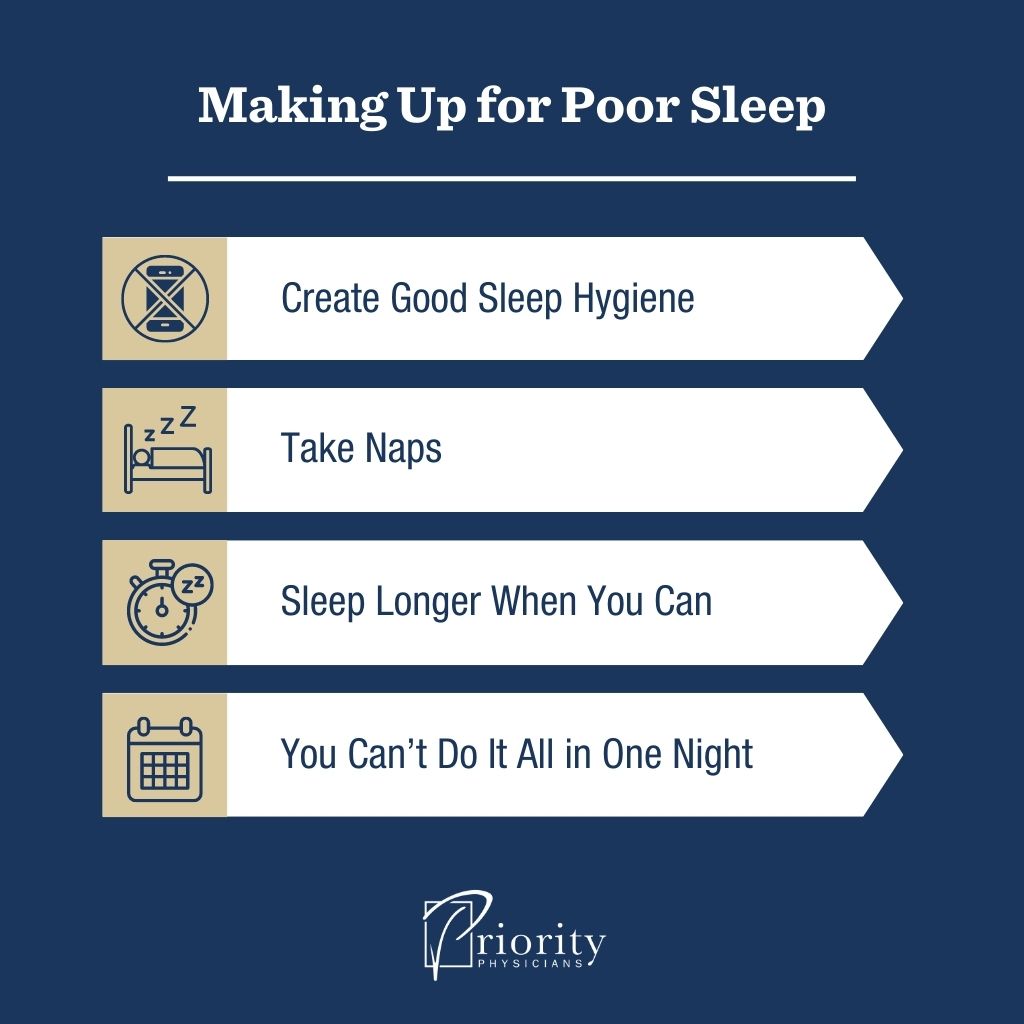More than 35% of American adults are sleep-deprived. That’s millions of people struggling through their days with insufficient rest, many times on less than six hours a night.
Sometimes people think they’re doing okay on little sleep. But sleep affects everything we do, including our ability to notice we’re performing poorly. When you’re sleep-deprived, you may not even realize how not okay you are.
The Old Way of Thinking About Sleep
In the past, conventional wisdom said that sleep was a use-it-or-lose-it resource. All you had was the night before. If you only got six hours one night, you couldn’t sleep ten the next night to make up for that missing time.
It was a strictly 24-hour game. If you got eight hours, great; if you didn’t, you started over the next night. There was no concept of sleep debt to pay off, or a sleep bank to fill in anticipation of an early morning.
But this thinking has changed, and that should give hope to those of us who can’t remember what it’s like to feel well-rested.
The New Way of Thinking About Sleep
New thinking says sleep is more flexible than we thought it was.
Under the new thinking, losing sleep puts you into sleep debt, which is a cumulative account of all the minutes and hours of sleep you’ve missed. And you can only pay off that debt with extra sleep.
This means sleep deprivation is like digging a hole. Every time you don’t get enough sleep, you dig the hole a little deeper. Every time you sleep a little extra, the hole fills in a little more.
So if you need eight hours of sleep and you only get seven one night and six the next, you have a sleep debt of three hours. You can counteract that sleep debt by filling in the hole with a few extra hours of sleep over the weekend.
Happily, the reverse is also true. If you know you have an early flight Friday morning, you can get a little extra sleep earlier in the week to build up your “sleep bank” ahead of time.
Making Up for Poor Sleep
Now that we have a theory that acknowledges sleep debt’s cumulative nature, how can you use that to your advantage?
One answer is, of course, to stop digging a hole. Don’t let sleep debt accumulate into long-term health consequences.
But sometimes missed sleep is unavoidable. Life happens, and when it does, you can make an action plan to eliminate your sleep debt.

Create Good Sleep Hygiene
You need extra sleep to eliminate sleep debt, but not all sleep is created equal.
If you get nine hours of sleep after a night of drinking, for example, those will not be quality hours. You might only get four hours of useful, deep sleep. And rather than reducing your sleep debt, you actually contribute to it.
Repaying your sleep debt requires good, quality sleep. And good, quality sleep requires good sleep hygiene, such as:
- Maintaining a regular bedtime routine
- Avoiding nighttime alcohol
- Staying away from screens for an hour before bed
Take Naps
Catching a nap or two can help make up for lost sleep. If necessary, you can keep them short to prevent naps from interfering with your nighttime rest.
Sleep Longer When You Can
When you can, sleep longer to make up sleep debt. If this means going to bed earlier one night and sleeping in on the weekends, then do that.
Listen to your body. Are you still yawning during conversations and nodding off during meetings? Then find opportunities to sleep a little more.
You Can’t Do It All in One Night
Most of the time, you won’t be able to catch up on all of your sleep in one night. It could take several nights before your body feels fully rested again. But don’t let that discourage you. You have to start somewhere, and restoring sleep is an important investment in your health.
Plan Ahead and Bank Your Sleep
Use Naps To Store Up Sleep
Naps aren’t just for making up missed sleep after the fact. If you know you’ll be traveling or staying up late, you can start a sleep bank ahead of time using naps.
Sleep Longer Leading Up to an Event
If you have a busy week coming up or a big event that will wreak havoc on your sleep schedule, you can make plans to sleep longer on the preceding nights to create a sleep bank.
The Final Word on Sleep
Life gets messy, and sleep is often the first thing to go. Recognizing the importance of sleep for a good quality of life will help you plan ahead to achieve a healthy sleep schedule that keeps you out of debt. And when eight hours just aren’t possible, you can implement some of the strategies from this post to bank sleep ahead of time or make up for what you miss.

